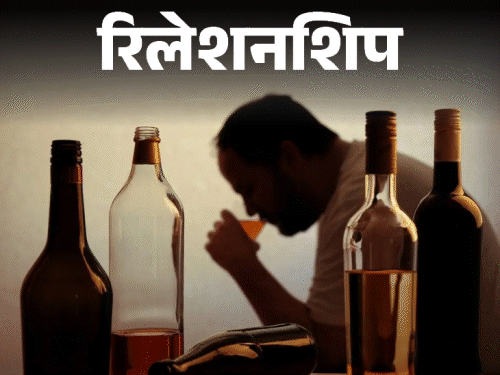OUR Small habits, which we take for granted, suddenly become an important part of our lives. We don’t even realize it. It is a mental and physical condition that makes us completely dependent on a particular habit or drug.
Whether it’s alcohol, tobacco or social media and internet addiction. The form of addiction may be different, but its effect is the same. It slowly eats away at our mental and physical health like termites.
Have you ever felt like a bad habit was having a profound impact on your life, but you still couldn’t give it up? This is the addiction trap. It gradually invades our brain.
Today in relationship we will learn that-
How does drug addiction hijack the brain? What are the solutions to overcome this?
Are you also a victim of addiction?
Recognizing addiction is not as difficult as it is for all of us to accept it. We often feel embarrassed to talk about it in society. However, accepting the problem is the first step towards recovery.
Let’s try to identify drug addiction through a few questions. Ask yourself this question and if the answer is “yes”, then you need to think seriously about yourself.
If you answered “yes” to any of these questions, you should be careful. You can call on an expert without any hesitation.
How does drug addiction work?
Addiction affects the brain’s reward system and emotional reactions. Four parts of the brain are deeply involved in addiction. Let’s understand through a graph how it works.
Let’s understand the points on the graph in detail and know how drug addiction affects the brain.
nucleus accumbens
Function: It functions as the center of the brain’s reward system. When a person consumes drugs, alcohol or any other intoxicating substance, they release the hormone dopamine, which gives a feeling of happiness. Effect of intoxication – By repeatedly increasing the level of dopamine, this level becomes normal for the brain. In such a situation, more intoxication is required to obtain happiness. This is the cause of drug addiction. For example, after taking drugs, a person works to the point of madness to obtain more drugs.
to the amygdala
Function – It controls emotions, especially fear, stress and anger. Effect of Intoxication – Intoxication reduces stress or emotional pain. In such a situation, the person begins to use it as a means of relief. Example: In stressful situations, people often resort to alcohol, drugs or other intoxicating substances. Little by little, it becomes a habit.
seahorse
Function – It stores memories and experiences. Effect of intoxication – The brain remembers pleasant experiences related to intoxication. For this reason, a person wants to experience this experience again and again. For example, if a person uses drugs at a party, then they may desire to get drunk at that party.
cerebral cortex
Function – It helps in making decisions and reasoning. Effect of Intoxication – Intoxication weakens that part of the brain, due to which the person is unable to decide right and wrong. Example – A person who is intoxicated is incapable of understanding. this habit harms his health and his life.
What is tolerance?
When you regularly use a drug, the body and mind gradually become dependent on that drug. The small amount that initially gave you relief is no longer as effective.
For this reason, you need more drugs to get the same pleasure. It not only changes your habits but also your mental and physical condition.
Have you ever felt like a glass of wine or a drag of a cigarette brought you comfort, but now it feels incomplete? This is the effect of the tolerance that has developed in your body. The most important step is to understand this and recognize it in time.
How do you become addicted to drugs?
Due to continued intoxication, the brain’s reward system stops working. Even drunkenness ceases to give happiness. Despite this, the urge to take drugs persists. This is because the brain remembers old experiences. As old memories become fresh again, the urge to drink arises again.
This craving further increases drug dependence. It is so strong that after many years a person is drawn to old habits. If a person has been an alcoholic before, they may want to drink again after seeing the bottle.
Conditioned learning helps understand that after recovering from drug addiction, people can fall back into the same addiction.
How to get rid of drug addiction?
Senior psychiatrist Dr Satyakant Trivedi explains that drug addiction is a mental illness. This affects brain function and behavior. We cannot abandon it simply by will. To get rid of drug addiction, the help and consultation of a psychiatrist is necessary at the right time, so that the person suffering from drug addiction can return to a healthy life through proper treatment and a supportive environment.
Getting rid of addiction is a long and difficult process. We need to make positive change alongside his treatment. We are talking about some measures that can help get rid of addiction. Let’s understand this graphically.
Change happens slowly, but with consistent effort and trust, we can become completely free from addiction. Can live a healthy and happy life. Consistency and patience are important in this process.

